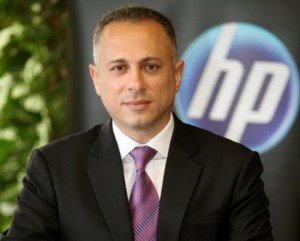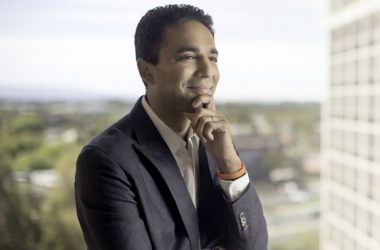As the dust begins to settle following arguably HP’s most challenging era, Middle East managing director, Eyad Shihabi, talks to Joe Lipscombe about where the wheels came off, and how retracing the steps back to the beginning will provide the spark needed to launch the company into the future.
It’s been a challenging time recently at HP and you’ve struggled to keep out of the news – how has that been from your perspective?
Firstly, we’ve been fortunate to be the biggest supplier of IT news over the past few years, but joking aside, it has been challenging, personally. Since the Autonomy scandal I’ve found myself spending most of my time defending the company, the policies, the innovations, but not anymore. Now, when I go into a meeting with a partner I ask if I have to update them on HP and they say no, they’re confident, they’re happy. HP is most definitely in the turnaround phase.
How much of this turnaround is down to Meg Whitman?
What Meg [Whitman] did was come in and recognise our problems and issues, honestly and openly admit these and then set about publically rectifying them. She is exactly what this company needed, she instils confidence and enthusiasm into this company and every team, partner and customer believes in her.
One of the main issues, from a customer perspective, was that many products were too complicated and the innovation aspect of HP had become slightly distorted, how did Whitman address this?
We had multiple products that were largely doing the same thing, too many silos, too many complications. Meg has given us new standards, we listened, we innovated. Now, take our converged cloud as an example – we’re the only company which can deliver the flexibility to our customers that we do, with no lock in, we’re proud of that. We give the tools to administrators in this space with over 100 maps for them to implement. We’ve completely simplified the experience, that’s what we’ve been strictly focused on over the past year.
This is about recognising where we went wrong, stripping it down and starting again. Technology can always be improved. The last few years have been confused; we were focused on acquisitions and not innovation. Now, we’re back in R&D and 100% of our energy is in investing in technology and innovation.
HP has had its fair share of CEOs in recent years, why is Whitman the right person for the job?
What Meg has done has recognised the culture of the company, the roots that Bill (William Hewlett) and Dave (David Packard) installed and made it what it once was. About four or five years ago we started to deviate from this culture and then the cracks started to show. Meg has made it clear to all of us that this company needs to be run on the culture of Bill and Dave, and that’s where we’re headed now. We’re growing now, and we’re pulling away from our competition. Competition won’t have any reason to make noise about us anymore.
In November last year, HP took an $8.8billion writedown following the news that Autonomy had grossly misrepresented its finances. What was the reaction like from your customers and partners in the immediate aftermath?
I went into meetings thinking I was going to have to do some explaining, however, when I arrived I was stopped and told to deliver a message to our CEO saying they salute what Meg has done. They believe in the technology and that’s different to the acquisitions. I replied ‘you just saved me half an hour’. Smart people, business people, understand what Meg has done and the culture she has inspired. When we make a mistake, we acknowledge it and move on.
And since then, what has the vibe been like?
Look, we’re one of the most successful and vigilant brands in the world. Last quarter, we over achieved and that brings confidence to us. Before, in the big quarters we were under-shooting the mark, because our vision wasn’t clear and we had problems in-house. But, we cleaned up the foundations, we changed things, and now we’ve never been more confident.
And in regards to your channel – partners recently expressed their concerns with HP going into direct competition with them. Locally, 99 percent of your business is channel, so how have you dealt with these concerns?
The channel plays a vital role, more so here than anywhere else globally perhaps. We did have some issues where, in places, HP was stepping on the toes of partners, because we didn’t have an aligned channel policy. We didn’t have a single channel that dealt with the service channel and the product channel, this caused confusion and lack of trust. So, we restructured this so it was all under one simple leadership. I went on a tour to meet all the partners, lay out the foundation of the changes, explain the alignment and now our satisfaction has tripled. We will never increase our direct business here. Those partners are crucial to us.






